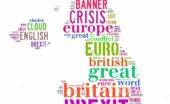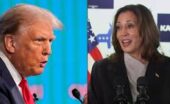Re The UN General Assembly Speaker Schedule is Here! I note that whoever will be speaking for Canada this year…
Wednesday Night #1785
Written by Diana Thebaud Nicholson // May 18, 2016 // Wednesday Nights // Comments Off on Wednesday Night #1785
The fight in Britain over Brexit is becoming more and more heated. Now that Boris Johnson is no longer London’s Mayor, he is launching ever more wild attacks and the remainers are countering with almost as much virulence. The Daily Telegraph has come down firmly on the side of Brexit and against “almost every powerful and wealthy name that the establishment can drop.”
Now that the vote for impeachment of Dilma Roussef is a fait accompli, as Alex Cuadros points out in the New Yorker, Three decades after the military ceded power to a civilian government, Brazil’s latest experiment with democracy is facing yet another identity crisis.
Venezuela is shaping up to be the next crisis in the Americas. The opposition is calling for a presidential recall (yes, odd phrase) and President Nicolas Maduro says they have run out of time. It sounds more as though he has. Opposition leader Henrique Capriles has urged the army to choose whether it is “with the constitution or with (President Nicolas) Maduro”, after the president announced a 60-day emergency, giving soldiers and police wider powers to deal with the country’s spiralling economic crisis.
It is dangerous to be an opposition leader in Russia. Alexei Navalny was attacked and beaten by Cossacks in an airport. Navalny is the founder of Russia’s Anti-corruption Foundation, probably not a career-enhancing move while Mr. Putin is around.
While on the topic of not-nice leaders, there is always Mr. Putin’s ally, Bashar Assad, who is thwarting Humanitarian Aid To Syria’s Kurds. HuffPost remarks rather unnecessarily that “It’s one more sign that the Kurds, key to defeating ISIS, are unlikely to embrace Assad as a partner.” and goes on “Starvation sieges have become a favorite tactic of Assad and the forces supporting him, including Russian jets, Iranian troops and Iran-backed militia fighters from Lebanon, Afghanistan and elsewhere. The dictator is responsible for the vast majority of deaths in Syria — far more than the so-called Islamic State — and is the primary reason for the headline-grabbing refugee crisis.” Another country where being opposition leader would not be a promising profession.
The gloomy story in The Economist Europe and America made mistakes, but the misery of the Arab world is caused mainly by its own failures suggests that “If the Lebanese civil war of 1975-90 is any gauge, the Syrian one has many years to run.”
And then there is The Donald. Ever more outrageous, constantly caught out by fact checkers, and still he surges on. It’s like a very bad movie. In a thoughtful piece for Project Syndicate, Joseph Nye looks at How Trump Would Weaken America, focusing on Trump’s praise of the “virtues of unpredictability – a potentially useful tactic when bargaining with enemies, but a disastrous approach to reassuring friends. Weakening America’s alliances, the likely result of Trump’s policies, is hardly the way to “make America great again.” America will face an increasing number of new transnational issues that require it to exercise power with others as much as over others. And, in a world of growing complexity, the most connected states are the most powerful”
We are indeed lucky to live in Canada, but we must also be vigilant and participatory. Two thorny issues with long-term consequences are looming: the TPP and electoral reform. In neither case do we perceive a clear-cut answer except for partisans. While we have tended to favor the preferential ballot, we are not oblivious to the fact that it could contribute to the perpetuation of a Liberal government as everyone’s second choice. We have listened to and read numerous opinions on the benefits/dire consequences of TPP and remain skeptical, especially given the issues surrounding intellectual property. We welcome comments on either or both topics.
Education is always dear to our hearts so herewith three items for your consideration:
IB or A-levels: which is best?
(The Telegraph UK) Recent research into higher education outcomes has tended to put the IB in a good light. A study by Leeds University academics found that students who took higher level maths at IB were more likely to get a first class degree than those who took A-level maths.
Analysis by the Higher Education Statistics Agency found that IB students were more likely to go to a top 20 ranked university than their A-level peers, more likely to get a first class degree and more likely to go on to postgraduate study
(NBR) What do prospective employers really think of online degrees? (video starts at 23:20) – much more favorable than you might have thought.
and this from the unlikely duo of Michael Bloomberg and Charles Koch
Why Free Speech Matters on Campus
‘Safe spaces’ will create graduates unwilling to tolerate differing opinions—a crisis for a free society
(WSJ) … this year the two of us—who don’t see eye to eye on every issue— believe that the most urgent advice we can offer is actually to college presidents, boards, administrators and faculty.
Our advice is this: Stop stifling free speech and coddling intolerance for controversial ideas, which are crucial to a college education—as well as to human happiness and progress.
Ben Fogle preaches that We need fewer exams and more wilderness in education — Instead of pumping time and money into exams, we should focus on wellbeing and encouraging children to connect with the natural world and more recently, If we want to save the world, we must re-connect young people with the outdoors — Growing up on a diet of smart technology, escalators and the lure of the indoors has left children with an outdoor deficit, which is disastrous for them and nature.
On Thursday, the Jeanne Sauvé Foundation presents “What Kind of Education Do We Need in a Culturally Pluralistic Society?” on Thursday, May 19, from 6:00-8:00 pm, at Sauvé House. Join Sauvé Fellow Edison Huynh for a stimulating education panel that will include perspectives at multiple levels of work: front line practitioners, academics, and policy makers will provide different lenses through which to view education as well as explore the Ethics and Religious Culture Program (ERC) curriculum, which is unique to Québec. Mandatory Registration
With all the really serious matters to consider, we are dismayed that the media (particularly social media) have decided to create a fuss over Sophie Grégoire Trudeau’s need for additional help (staff) to handle the hundreds of invitations and requests for support/promotion of causes that she receives. Granted, she could have been more discrete (and less whingey) about it. As blogger Robbie Kreger-Smith says: she chose the wrong audience at the wrong time. Most parents who work full-time or more would be over the moon to have one helper with the chores and children. To want to have two plus an office of staff to coordinate your life and scheduling commitments comes across as tone-deaf and elitist, even if it is warranted by the purposes you are taking on; but she will learn.
Lawrence Martin adds a reasoned and gracious voice to the debate in Prime Ministers’ wives have answered the call, concluding “Sophie Grégoire Trudeau is fashionable, smart, caring and popular. In her privileged though unpaid position she is working like our other leading ladies on important causes. Like them, she can make a big contribution. All the more so if the spotlight shines on what’s important instead of kerfuffles.” Amen!
Interesting item from The Atlantic Daily (one of the more enjoyable and eclectic feeds we get) – The Facebook Vote: The social-media network has come under scrutiny for allegedly tailoring political news content it shows users. Facebook says it would never try to skew the upcoming presidential election or influence voting behavior. But the company actually has the capacity to do so by manipulating the algorithms that curate news feeds of a huge amount of voters. Facebook users get their news from Facebook [more] than [from] any other source, and 40 percent of all U.S. news traffic originates from the website. In the 2010 election, Facebook’s “I Voted” feature drove 340,000 Americans to the polls that would not have voted otherwise.
Time for summer reading lists.
Sabra Ledent is the editor of the soon-to-be published Dull Disasters? How planning ahead will make a difference and writes, “A book I just edited that will be published shortly by Oxford University Press. With tornadoes demolishing the Midwest and The Beast burning its way through Alberta, it’s a timely read. These authors [Daniel J. Clarke and Stefan Dercon] are amazing….
A new book about the internet by Virginia Heffernan: Magic and Loss – The Internet as Art “Since its inception, the Internet has morphed from merely an extension of traditional media into its own full-fledged civilization. It is among mankind’s great masterpieces—a massive work of art. As an idea, it rivals monotheism. We all inhabit this fascinating place. But its deep logic, its cultural potential, and its societal impact often elude us. In this deep and thoughtful book, Virginia Heffernan presents an original and far-reaching analysis of what the Internet is and does.
Highly recommended to some of you (you know who you are!) who forward “news” items that are easily checked on Snope, not a book, but an entertaining, informative read and useful reference as fake news sites proliferate: Snopes’ Field Guide to Fake News Sites and Hoax Purveyors — Snopes.com’s updated guide to the internet’s clickbaiting, news-faking, social media exploiting dark side.



